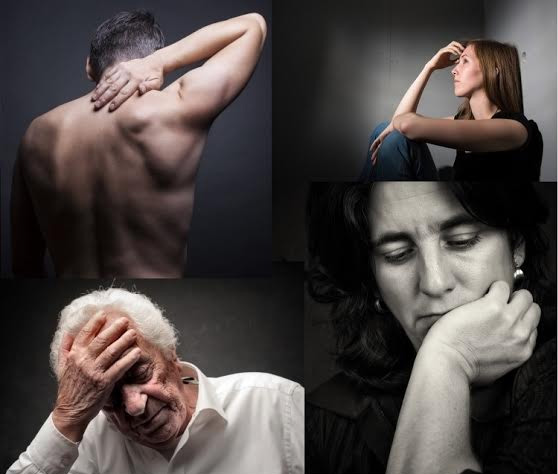Depression, or major depressive disorder, is the most common psychiatric disorder worldwide. In 2019, approximately one in five (18.5%) adults in the United States experienced symptoms of depression in the past two weeks.
Also read about Seasonal Depression here.
Depression negatively impacts the way you feel, think, and act. It can lead to many different emotional and physical problems and disrupt your ability to perform day-to-day tasks. Symptoms may be severe and long-lasting, and can include:
- Feeling sad or having a depressed mood
- Loss of interest or pleasure in most or all activities
- Change in appetite or weight – weight gain or loss
- Trouble sleeping or sleeping too much
- Loss of energy or increased fatigue
- Restlessness or sluggishness noticeable by others
- Feelings of worthlessness or guilt
- Difficulty concentrating or making decisions
- Thoughts of death or suicide
A person who has five or more of the above symptoms for at least two weeks may be suffering from depression.
Not only can depression negatively affect those around you, but people with untreated depression have a lower quality of life and higher risk of suicide. It is important to seek treatment if you are feeling depressed. Treatment options for depression include medications, psychotherapy, and neuromodulation interventions. Research shows that a combination of medication and psychotherapy is more effective than either treatment alone. It may take time for you and your medical doctor to find the right treatment or treatments for you, but most patients eventually respond well and notice a significant improvement in symptoms.
Medications
Medications used to treat depression are called antidepressants. There are many different classes of antidepressants, as you can see in the table below.
SSRIs are generally considered first line treatment for patients with mild to moderate depression who wish to start medication. Your doctor will review safety and side effects of medication options and decide which may be the best choice for you. It may take some trial and error to find the right medicine.
Antidepressants do take time to work; it can take between 6-12 weeks to see the full effect of a medication. Many people start to notice some improvement within a few weeks, however. It is important to remember that everyone is different, and you should give the medicine time to work. Be sure to talk to your trusted healthcare professional about bothersome side effects. Never stop taking your medication suddenly without talking to your doctor first.
Psychotherapy
Psychotherapy, also known as counseling or “talk therapy,” involves a psychiatrist, psychologist, or other licensed mental health provider. There are many different forms of psychotherapy, including cognitive-behavioral therapy (CBT), interpersonal psychotherapy, and supportive psychotherapy. The goal of these therapies is to learn more about your condition, feelings, thoughts, and behaviors. This knowledge can help you make positive changes and face challenges with effective coping skills. The benefits of psychotherapy can also last after treatment stops.
Neuromodulation interventions
Neuromodulation interventions include transcranial magnetic stimulation (TMS) and electroconvulsive therapy (ECT). These treatment options are usually reserved for patients with very severe depression or those who do not respond to medications and psychotherapy.
TL;DR
Only your medical doctor can help you decide which treatment or treatments are best for you. Depression is a real illness with many treatment options available. With the proper diagnosis and treatment, many people can overcome depression. If you are experiencing symptoms of depression, the first step is seeing your healthcare provider.
References
- Villarroel MA, Terlizzi EP. Symptoms of depression among adults: United States, 2019. NCHS Data Brief, no 379. Hyattsville, MD: National Center for Health Statistics. 2020.
- Snow V, Lascher S, Mottur-Pilson C. Pharmacologic treatment of acute major depression and dysthymia. American College of Physicians-American Society of Internal Medicine. Ann Intern Med 2000; 132:738.
- Marion, DW. Depression treatment options for adults. In: UpToDate, Post, TW (Ed), UpToDate, Waltham, MA, 2022.











